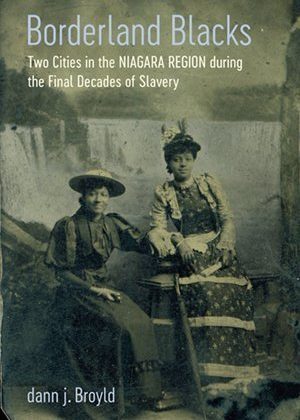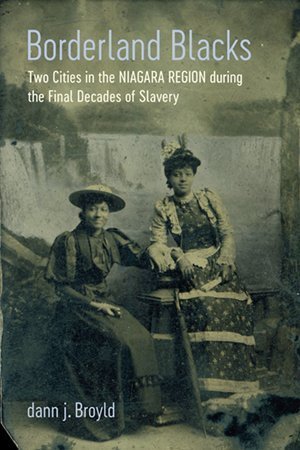

Daniel J. Broyld is Associate Professor of African American History at the University of Massachusetts Lowell. This interview is based on his new book, Borderland Blacks: Two Cities in the Niagara Region during the Final Decades of Slavery (LSU Press, 2022).
JF: What led you to write Borderland Blacks?
DB: I am a Borderland Black. Born to Rochester, New York, I was raised near where the neighboring nations of the United States and Canada meet. Thereby, my writing is earnest and not contrived. The research is rigorous, but via lived experience, I can relate to the historical figures in the text as they oscillated between the American-Canadian border. I too, used the tools, encountered the internationalism, and felt the texture of the borderlands. In the Niagara Region, the two-way flow of people, ideas, and social networks runs as deep as the Niagara Gorge, reaches the cliffs of the Niagara Escarpment, flows like the Niagara River, and it is as fluent as the Horseshoe Falls. I was led to write this book by life, location, and the leadership of brilliant scholars at Howard University.
JF: In 2 sentences, what is the argument of Borderland Blacks?
DB: The book asserts that Black inhabitants of Rochester, New York, and St. Catharines, Canada West, (the last major stops on the Niagara Underground Railroad route) each possessed transnational identities and strategically positioned themselves near the American-Canadian partition where immigration, movement, and interaction occurred; their lives were intertwined by shared newspapers, annual celebrations, religious organizations, as well as kinship and friendship ties that were reinforced by regular border crossings. In all, the objective of Borderland Blacks is to elucidate how the times and terms of emancipation affected Blacks on each side of the border, while demonstrating their political agency to pit the United States and British Canada against one another for the best possible outcomes.
JF: Why do we need to read Borderland Blacks?
DB: Because the waves, wonders, and whirlpools of Niagara Falls wash over the pages of Borderland Blacks. The waters rinse clear both the bigotry and beauty of the Flower City (Rochester) and the Garden City (St. Catharines). In the local histories of these two towns, the transnational and international dynamics are uncovered to make this tome an African Diaspora and Atlantic World study. With each subsection and chapter, the book gains momentum, while the conclusion is a crescendo, and the epilogue logs the growth of the Niagara Movement and the birth of the NAACP. It is a book worthy of reading, complete with hidden jewels, it should be shared with likeminded friends. All those interested in border studies regardless of time, location, or nations involved will find value and threads of similarities–as people manipulate borders in ways that officials do not intend or anticipate.
JF: Why and when did you become an American historian?
DB: I always tell people that I did not pick history, it picked me. As I was attending middle school and high school in New York, the classes I did best in were my History and Social Studies classes. History came seamlessly to me; I got good grades without much effort; I did well on the New York State comprehensive examinations; and even my teachers noticed my talent, despite my desire to be the “Class Clown.” Perhaps, I could say history was a calling, but that would be too deep. History was simply the subject I was superb at in school, and I decided to carry it on in my collegiate studies.
JF: What is your next project?
DB: My next book project will be historical essays on Black Canada in the 19th Century. The topics will include: Black love, Canadian prejudice casted as an “American Virus,” and the reverse migration of Blacks during the Civil War era back to the United States, while Southern Confederates clattered to cross the border. I have started a conversation on Black Canada and I plan to continue it well into the future. I am also crafting an article on Drapetomania the epidemic believed to have caused Blacks to flee from bondage.
JF: Thanks, Daniel!